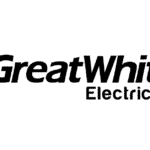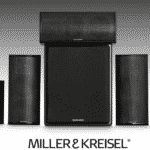
OCF welcomes the certification of the first-ever standards-based, low-power IoT platform to combine the end-to-end security benefits of Open Connectivity Foundation (OCF) technology and the low power and wide-area coverage advantages of Thread. This creates an unprecedented opportunity for the rapid build and deployment of securely connected IP-based ultra-low-power devices. Laying a transformational foundation for highly secure smart buildings and smart city landscapes.
The certified platform from Cascoda comprises the first-ever module to offer OCF’s secure IP framework and application layer, and Thread’s low-power and scalable IPv6-based network layer protocol; the required Thread IP router; and OCF cloud connectivity functionality. This unique combination of features, including a root of trust (RoT), cryptographic acceleration, and hardware tamper protection features, combined with the unparalleled security features of OCF and Thread, have enabled it to gain both European and UK IoT security attestation through the IASME ‘IoT Security Assured scheme’.
Aligning with OCF’s mission and enabling secure end-to-end IoT deployments that encompass device-to-device, device-to-cloud, and cloud-to-cloud without the privacy concerns of consumer-driven cloud-connected systems. This development supports another key aim of OCF, which is to drive demand-side energy efficiencies in commercial building automation systems (BAS) and smart city infrastructure through migration to secure IP solutions. This is a significant step towards achieving the vision of IP-BLIS – a market interest group, which brings together standards organizations including OCF, KNX, DALI, BACnet, Thread Group, and Connectivity Standards Alliance to support the adoption of a secure, multi-standard IP-based infrastructure.
Mark Trayer, OCF Chair, comments: “This development is a milestone for OCF and for all IoT stakeholders wishing to take advantage of the highest levels of security on low power IP-based mesh networks. Until now, this hasn’t been possible. Now, however, an opportunity has been unlocked for low power devices on mesh networks, and the services and applications they run, to leverage a chain of trust built on OCF’s public key infrastructure (PKI) to ensure secure end-to-end encryption over IP. This unleashes lots of potential for organizations wishing to scale deployments without limitation while maintaining simple and secure network control. For example, a network initially built as part of a smart city scheme to control street lighting can be scaled up securely over time to add in other real-time public services, such as air quality or traffic monitoring. Permission-based access can be granted to different stakeholders, ensuring they can only see data from their applications. We’re excited by the possibilities presented by this platform and applaud Cascoda for leading the way with this development.”
Bruno Johnson, CEO of Cascoda and OCF Member, adds: “By combining the unique advantages of OCF and Thread’s low power wireless networking protocol into this now certified IoT platform, we have opened up the possibility for battery and energy-harvester powered devices to be uniquely addressable over the internet while allowing them to benefit from the most advanced level of IoT security. As a result, we have eliminated the cost and complexity of the gateway. This opens up significant opportunities for those planning smart building and smart city infrastructure, where highly secure services can now be delivered through low power, IP-based mesh networks, covering large areas.”
About Open Connectivity Foundation
The Open Connectivity Foundation (OCF) is a global, member-driven technical standards development organization. Its 500+ members are working to enable trust, interoperability, and secure communication between IP-connected IoT devices and services. This enables innovative new secure use cases and user experiences, reduces development costs, integration complexity, and time to market, and simplifies regulatory compliance to IoT security and privacy baselines. The vertical-agnostic technology has already seen significant adoption in the smart home sector and is now enabling the transition to secure, intelligent, Building Automation Systems (BAS) based on IP connectivity networks.
For more information on Open Connectivity Foundation, please visit https://openconnectivity.org/
About Thread Group
Formed in 2013, the non-profit Thread Group is focused on making Thread the foundation for the internet of things in homes and commercial buildings. The Thread Group provides a rigorous certification program to ensure device interoperability and a positive user experience. Thread is backed by industry-leading companies including Amazon, Apple, Google/Nest, Lutron, Nordic Semiconductors, NXP Semiconductors, OSRAM, Qualcomm, Siemens, Silicon Labs, Somfy, and Yale Security. To learn more please visit, https://www.threadgroup.org/















